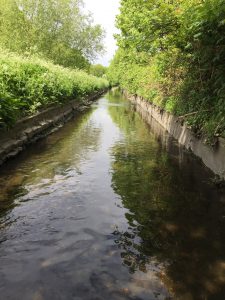
May 28, 2019, by lzzeb
Researcher Links Workshop – China August 2019
Call for participants from China and the UK to workshop on: Urban River Flood Control and Restoration
Under the Researcher Links scheme, we will be holding a workshop on the above theme in Wuhan, China from the 23rd to 25th August 2019. The workshop is being coordinated by Dr. Matthew Johnson and Dr. Shan Zheng, and will have contributions from other leading researchers. We are now inviting Early Career Researchers based in China and the UK to apply to attend this workshop.
All travel and accommodation expenses will be covered by the Researcher Links programme. The application form, with more details on the initiative, is available from and should be returned to, m.johnson@nottingham.ac.uk before the deadline of 10th June 2019.
Background to the theme
Rivers are one of the most biodiverse habitats on Earth but are also some of the most degraded by human activity. It is acknowledged that past management has not improved rivers, evidenced by the fact that management has caused substantial ecological detriment and the issues it aims to improve, such as drought, disease and flooding, still exist. Indeed, in many places past management has increased the risk of river hazards. As such, traditional river and flood management techniques, such as levees, flood walls and dredging are increasingly seen as unsustainable solutions, leading to a move towards slowing and storing the flow and restoring channels back to a more natural state. However, despite restoration science and the use of green infrastructure having positive hydrological and geomorphological impacts, the ecological benefits tend to be disappointing. In addition, mutual benefits of green space and working with natural processes, such as water quality improvements, are rarely incorporated into urban design. To maximise the benefits of restoration whilst simultaneously reducing risk and maintaining the societal functions water resources must provide, new knowledge and interdisciplinary perspectives on management are required. The proposed workshop will provide a forum for the development of this new science and is timely, coming at a moment when there is a desire to provide functioning green space in global metropolises and when major river infrastructure projects in the UK and China incorporating green space are moving towards completion.
Funding details
The workshop will provide a unique opportunity for sharing research expertise and networking. During the workshops early career researchers will have the opportunity to present their research in the form of a short oral presentation and discuss this with established researchers from the UK and partner countries. There will be a focus on building up links for future collaborations and participants selected on the basis of their research potential and ability to build longer term links.
This work is supported by a Researcher Links grant, ID [2018-RLWK10-10399], under the China-UK Partnership. The grant is funded by the UK Department for Business, Energy and Industrial Strategy and National Science Foundation of China and delivered by the British Council. For further information, please visit www.newtonfund.ac.uk.
The Researcher Link programme provides opportunities for early career researchers from the UK and internationally to interact, learn from each other and explore opportunities for building long-lasting research collaborations. As part of this programme, we are now recruiting early career researchers to participate in the above workshop.
The Newton Fund and National Science Foundation of China will cover the costs related to the participation to the workshop, including: travel (both international and local), accommodation and meals. Costs for the visa, and travel insurance will be covered; however participants will be responsible for making all the necessary arrangements. The funders and workshop organisers accept no responsibility for any problems which may occur with travel or accommodation arrangements or any other issues participants might experience when the participants are away from their home.
No comments yet, fill out a comment to be the first


Leave a Reply